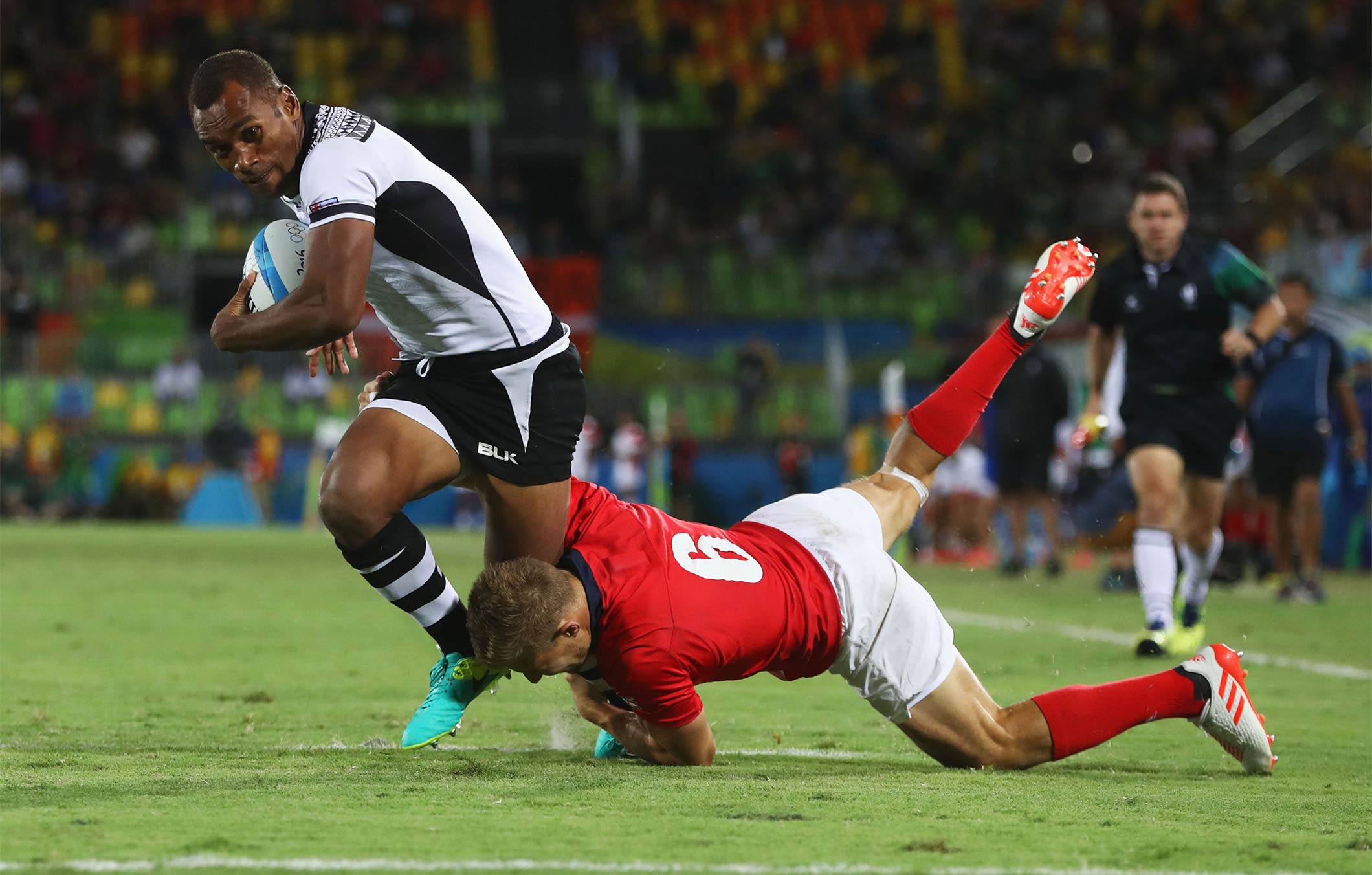Tom Mitchell talks rugby sevens
One of the world’s leading rugby sevens players, Tom Mitchell captains England in the World Rugby Sevens Series and led Great Britain to silver at the Olympic Games Rio 2016. In an energy-sapping sport of unrelenting action, big hits and electrifying bursts of speed, played on a pitch the same size as the one used in rugby union, he has all the attributes needed to excel at the very highest level.
Mitchell began playing rugby at the age of eight and played the 15-a-side game at school and university, pulling on the famous dark blue Oxford University jersey for the 2011 Varsity match against Cambridge. Recalling his appearance in that celebrated fixture, he told World Rugby: “It’s one of the standout moments of my career and an experience I’d been dreaming about since I was young.”
Reflecting on his early days in international rugby sevens, he said: “I have a very clear memory of my first rugby sevens match. I remember feeling a bit sick in the canteen before my first training session. I didn’t really know what to expect because I’d only ever seen it on TV and there were some big names around me. I played my first tournament in Wellington in 2012 and made my debut against Cook Islands. I scored my first try with my first touch in my first match. It was a pretty nice way to start.”
It was not long before he was made England captain. “It was a turning point in my apprenticeship and a great honour. I’ve continued to improve but there’s still a long way to go. I’m learning every day, I want more and I’m always looking to make it to the next level.”
Sidelined with a serious ankle injury in 2015, he returned to captain Great Britain at the inaugural Olympic rugby sevens tournament at Rio 2016. After finishing top of their first-round pool, Mitchell and his team-mates beat Argentina in the quarter-finals and South Africa in the semis to set up a meeting with in-form Fiji in the gold-medal match.
However, the British were no match for the supremely skilful and hard-tackling Pacific islanders and went down to a 43-7 defeat. After collecting his silver medal, the GB captain said: “Growing up and being a lover of sport as a kid, you watch the Olympics realising that’s the pinnacle of sport.”
A year after making the podium at the biggest sporting event of them all, Mitchell skippered England to their best ever performance in the World Series. In finishing second behind South Africa, they recorded tournament wins in Sydney and London, ended up runners-up in Cape Town and Vancouver, and took third in Dubai and Singapore.
The English came in fifth in 2018, a season in which they were runners-up in Paris. By the middle of the 2019 campaign, in which he had scored 11 tries and made 29 conversions, Mitchell had racked up career stats of 305 matches, 1,521 points and 131 tries.
Making an appearance in the Olympic Channel’s “Anatomy of a Champion” series, Mitchell visited a state-of-the-art laboratory to undergo a series of tests that gauged both his physical and mental prowess. After putting his cognitive ability to the test, Mitchell was told that his average reaction time was quicker than that of 2009 Formula 1 world champion Jenson Button.

Summing up the rugby star’s results, test supervisor Prof. Greg Whyte said: “They’re absolutely outstanding. But the standout thing is his ability to operate under pressure, to make decisions, and that will be the difference between winning and losing.”
“You have to live a different life,” said the 29-year-old Mitchell, explaining the sacrifices he has made to reach the top of his sport. “You have to stay in when you might want to go out. You can’t just have a lazy takeaway; you need to make yourself proper food all the time. For some people that’s not the life they want to live, but the rewards are great: being able to represent our country on the biggest stage.
“The thing about being a professional athlete is you’re not just 9 to 5. There’s not really a clocking-off time, so you go home, you think about what you’re eating, how much sleep you need that night. That can be a tough thing to adjust to at the beginning but, once you’re into it and you realise why you’re making those sacrifices, then it just becomes part of your life.”